Christ Church Cathedral | Map
Amanda Forsythe, soprano; Emőke Baráth, soprano; Colin Balzer, tenor; Christian Immler, bass-baritone; Stephen Stubbs, artistic co-director of BEMF and baroque guitar; BEMF Chamber Ensemble; Paul O’Dette, artistic co-director of BEMF and theorbo; Erin Headley, viola da gamba; Maxine Eilander, baroque harp; Michael Sponseller, harpsichord
The outstanding features of Steffani’s enchanting chamber duets are their contrapuntal sophistication, and the need for extremely accomplished solo singers with the sensitivity necessary for performing complex chamber music. Johann Mattheson recognized both facets in 1739, confirming that Handel had chosen his models for this genre wisely, and also that, in his estimation, Steffani’s works remained unsurpassed. Colin Timms’ 1987 essay, Steffani’s Influence on Handel’s Chamber Duets, explored the various ways in which Handel appropriated Steffani’s thematic material, contrapuntal style, and overall duet structure for his own works. An Emeritus Professor of Music at the University of Birmingham (UK), Dr. Timms provided the inspiration for this extraordinary Boston Early Music Festival (BEMF) CD project and concert, and has been very generous in helping to shape it.
Under the direction of BEMF Musical Directors Paul O’Dette and Stephen Stubbs, four stunning vocalists—sopranos Amanda Forsythe and Emőke Baráth, tenor Colin Balzer, and baritone Christian Immler—and a continuo team of six brilliant instrumentalists will present a selection of Steffani’s gorgeous chamber duets, as well as instrumental gems from the Baroque. This concert coincides with the North American release of the first volume of BEMF’s Steffani Chamber Duet CD series on the CPO label, which features the same BEMF vocalists and instrumentalists. Five of the nine duets performed on this program have never been commercially recorded, so even connoisseurs in the audience will likely be hearing most of them for the first time.
“Ultimately this was Forsythe’s evening. Her voice suits the repertoire perfectly: there is clarity, exquisite intonation, mesmerizing agility, and beautifully scaled dynamics. Add in her genius for communication, and you have an idea of what makes her work so impressive.” – The Vancouver Sun
Supported by Tony & Margie Knox
Click here for information about parking around / transiting to Christ Church Cathedral
Programme
Tengo per infallibile, duet for soprano and bass – Agostino Steffani (1653-1728)
Sinfonia à due for guitar and continuo – Francesco Corbetta (1615-1681)
Quanto care al cor, duet for two sopranos – Steffani
Partita sopra la Ciaccona for harp and continuo – Girolamo Frescobaldi (1583-1643)
E perchè non m’uccidete, duet for soprano and tenor – Steffani
Air and Variations (“Harmonious Blacksmith”) for harpsichord – George Frideric Handel (1685-1759)
From Suite No. 5 in E major, HWV 430
Su, ferisci, alato arciero, duet for two sopranos – Steffani
INTERVAL
Occhi belli, duet for soprano and tenor – Steffani
Gelosia, duet for soprano and tenor – Steffani
Col partir la bella clori for viola da gamba – Handel
Fulminate, duet for soprano and bass – Steffani
Programme Notes
When the young musical lion, George Frideric Handel, arrived in Rome in 1706 at the age of twenty-one and fresh from his victories at the Hamburg Opera, he was eager to make an impression and even more eager to learn whatever he could from the Italian musical scene.
Handel is perhaps the greatest illustration of W. H. Auden’s adage “amateurs borrow, professionals steal” in that he methodically found the best models for creating his own compositional practices. He had left Hamburg in 1706 bound for Italy with several Reinhard Keiser operas in his luggage and then immediately acquired a book of Agostino Steffani’s chamber duets on his arrival in Rome. In particular, his “modeling” on Steffani duets forms a parallel to his use of Arcangelo Corelli as a model in the realm of the instrumental trio sonata.
The outstanding feature of Steffani’s chamber duets is their contrapuntal sophistication. But another element is of equal importance: the fact that they are written for extremely accomplished solo singers who also have the sensitivity necessary for complex chamber music. Both points are recognized by Johann Mattheson in 1739—eleven years after Steffani’s death—when he compares the Italian duet to the French form:
The Italian type of duet lacks much of the aforementioned virtues of piety and clarity, because of their fugal, artificial and intertwined nature; however, they require a true man, and are a great pleasure to the musically trained ear, in the chamber as well as the church (and earlier in Steffani’s time, also in the theater), if skilled, well-trained singers can be found for them: of these last we now have fewer than of such works. The said Steffani was incomparably outstanding in this type, before all others whom I know, and to this hour deserves to be taken as a model. For such things do not easily become obsolete.
Mattheson’s statement confirms that Handel had chosen his model wisely, but also that, in the estimation of Mattheson (who would have known at least some of Handel’s duets), Steffani’s works remained unsurpassed.
Why did a composer of such stature as Steffani disappear from our collective consciousness whereas Handel and Corelli are both virtually household names for classical music lovers? One answer to that question is that he was an Italian composer who spent the vast majority of his career in Germany, and is consequently missing from Italian musical histories, and on the other hand, influential as he was in Germany, German musical history (particularly in the twentieth century) has been much occupied with establishing the “purity” of German inspiration, free of foreign influence. Another reason is surely that Steffani’s most important music was vocal music for the theater or the chamber—that is, opera and chamber duet. Only recently has there been an interest in reviving his operas and there is no modern tradition of high-level vocal chamber music performance to compare with the popularity of instrumental chamber music.
For all of these reasons, concert performances such as this one are likely to remain rare. Nevertheless, if the occasion arises to pair excellent solo and chamber singers with a well-matched team of continuo players, there could be no music more rewarding than this to perform.
Tengo per infallibile
The combination of bass and soprano voices seems to have been in particular favor in Italy, but not in the north. Handel wrote his only examples of this combination when in Italy, while Steffani composed most of his in south Germany. This piece is partly built on the ostinato bass patterns of the ciaccona and the passacaglia, harking back to the duets of Monteverdi such as the celebrated Zefiro torna.
Sinfonia à due
Francesco Corbetta was the most celebrated guitarist of the seventeenth century with a career that spanned the greatest courts of Europe. This Sinfonia, in his native Italian style, was published in his Varii Capricii per la Ghitarra Spagnuola in Milan in 1643.
Quanto care al cor
Handel seems to have been particularly taken with this duo, borrowing from it for two of his own duets, and in particular using it as a model for creating vocal “chains” whenever such an image arises in the poem to be set.
Partita sopra la Ciaccona
Corbetta’s Roman contemporary Girolamo Frescobaldi specialized in music for keyboards. This was the main source for contemporary harpists of solo music for the harp, as harpists themselves guarded their compositions jealously and rarely published their works.
E perché non m’uccidete
This text is by Brigida Bianchi, an actress and singer at the Comédie-Italienne in Paris, whose poems were published in Paris in 1659 and 1666. Steffani may have encountered these texts, and their author, on his visit to Paris in 1678–1679.
Air and Variations (“Harmonious Blacksmith”), HWV 430
The Air and Variations is the final movement of Handel’s Suite No. 5 in E major for harpsichord which has been continuously known and played as an independent piece since Handel’s time, gaining the title (not given by Handel) “Harmonious Blacksmith” somewhere along the way. The exhilarating effect of the increasingly virtuosic variations probably accounts for its continued popularity.
Su, ferisci, alato arciero
This duet has the satisfying overall form of a large da capo aria with the vivacious duet for two sopranos at the beginning and end with matching solo “gavottes” for each singer in between.
Occhi belli, non più
This duet for soprano and tenor is laid out in a large structure with opening and closing duets, but with the solo sections for each of the singers comprising two or three arias in contrasting meters and keys. This is another piece studied closely by Handel, who used material and techniques from it in several of his own works.
Gelosia
In Gelosia, between the opening and closing duet sections, each solo is a recitative with cavata: the text consists entirely of recitative verse, but the final line of each stanza is set as a short aria that is “excavated” from the poetry.
Col partir la bella Clori
Originally an aria from one of Handel’s Roman cantatas—Ah! che pur troppo è vero, HWV 77—this piece lends itself to instrumental performance by providing a mesmerizing and pulsating bass line reminiscent of a tango with a gorgeously arcing vocal melody above it that perfectly suits the viola da gamba.
Fulminate, saettate
We end with one of the most dynamic Steffani duets on the propulsive idea of blazing, darting eyes. Of course poetic emphasis on the eyes of the beloved, whether bewitching or all-conquering, is a recurring theme in this poetry of love and passion—but here it is their deadly dangerous speed and force which are portrayed in this intense music.
—Stephen Stubbs, 2017
(with multiple “thefts” from Colin Timms)
Programme Texts and Translations
Click here to download the texts and translations for this concerts
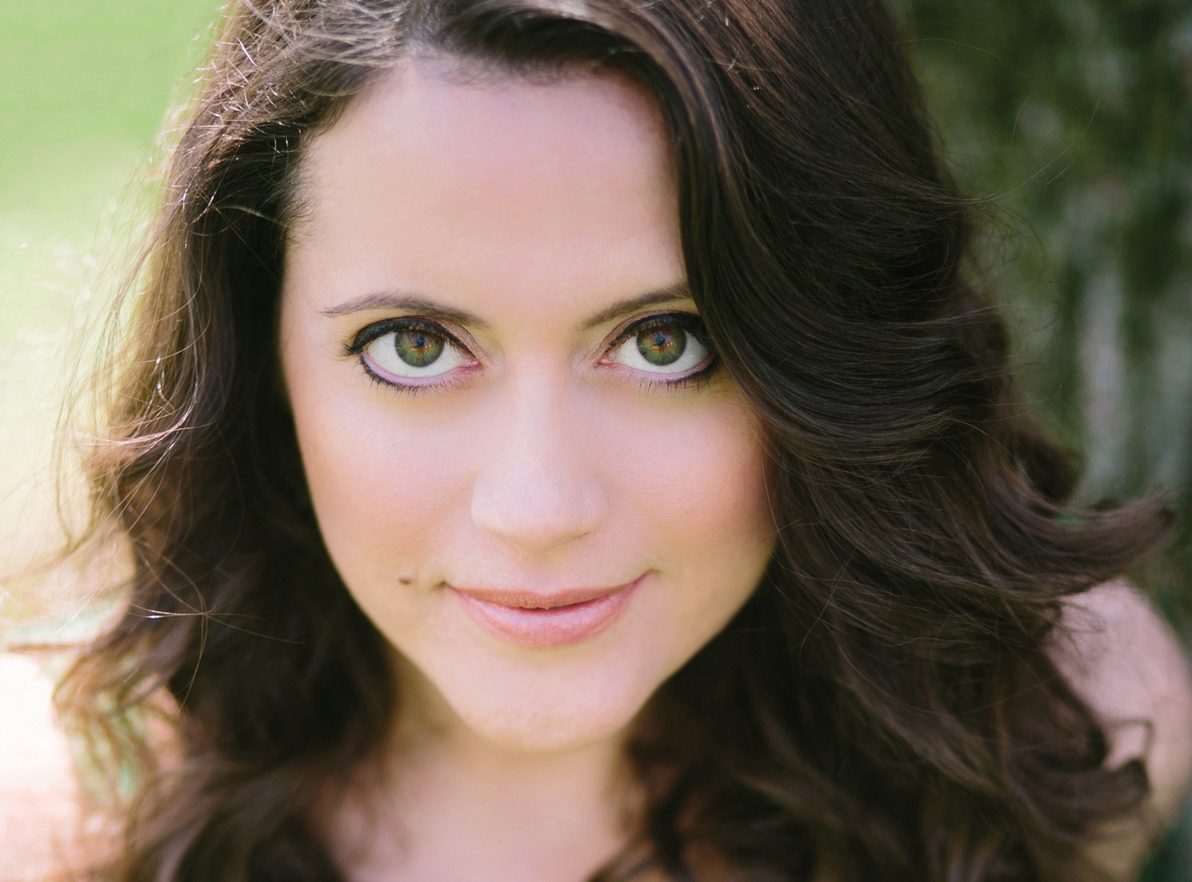
Amanda Forsythe, soprano
Amanda Forsythe performs regularly with many leading baroque ensembles including Apollo’s Fire, Boston Baroque, Handel and Haydn Society, Les Talens Lyriques, Pacific Musicworks, Philharmonia Baroque, Vancouver Early Music, and Boston Early Music Festival (BEMF) with whom many of her performances have been recorded commercially.
She sang Eurydice on BEMF’s GRAMMY-winning recording of Charpentier’s La descente d’Orphée aux enfers, released her début solo album The Power of Love with Apollo’s Fire on the Avie label and recorded Euridice in the 1774 version of Gluck’s Orfeo with Philippe Jaroussky for ERATO.
Major symphony orchestra engagements include Mendelssohn’s A Midsummer Night’s Dream (Boston Symphony and Los Angeles Philharmonic), Mozart Requiem (The Philadelphia Orchestra), Bach Magnificat (Accademia Nazionale di Santa Cecilia), Handel’s Sileti venti and Laudate pueri, Messiah and Schubert Mass No 6 in E Flat (Chicago Symphony), Mozart C Minor Mass and Requiem (Monteverdi Choir and Orchestra) and Mozart Concert Arias (Kymi Sinfonietta, Finland).
Opera roles include Jemmy Guillaume Tell, Corinna Il viaggio a Reims and Rosalia L’equivoco stravagante (Pesaro), Dalinda Ariodante (Geneva, Munich), Nannetta Falstaff, Amour Orphée, Manto Niobe and Barbarina Le nozze di Figaro (Royal Opera, London), Pamina Die Zauberflöte (Seattle and Rome), Iris Semele (Seattle), Partenope (title role) and Poppea Agrippina (Boston Baroque), Isabelle Le Carnaval de Venise, Serpina La serva padrona, Edilia Almira and the title roles in L’incoronazione di Poppea, Venus and Adonis, and Niobe (BEMF).
Forthcoming engagements include a concert tour with Philippe Jaroussky, Messiah (Lucerne Symphony Orchestra), Handel arias and Vivaldi’s Gloria (Chicago Symphony), Semele (Opera Philadelphia), Pamina Die Zauberflöte (Komische Oper, Berlin) and Marzelline Fidelio (Royal Opera, Covent Garden).
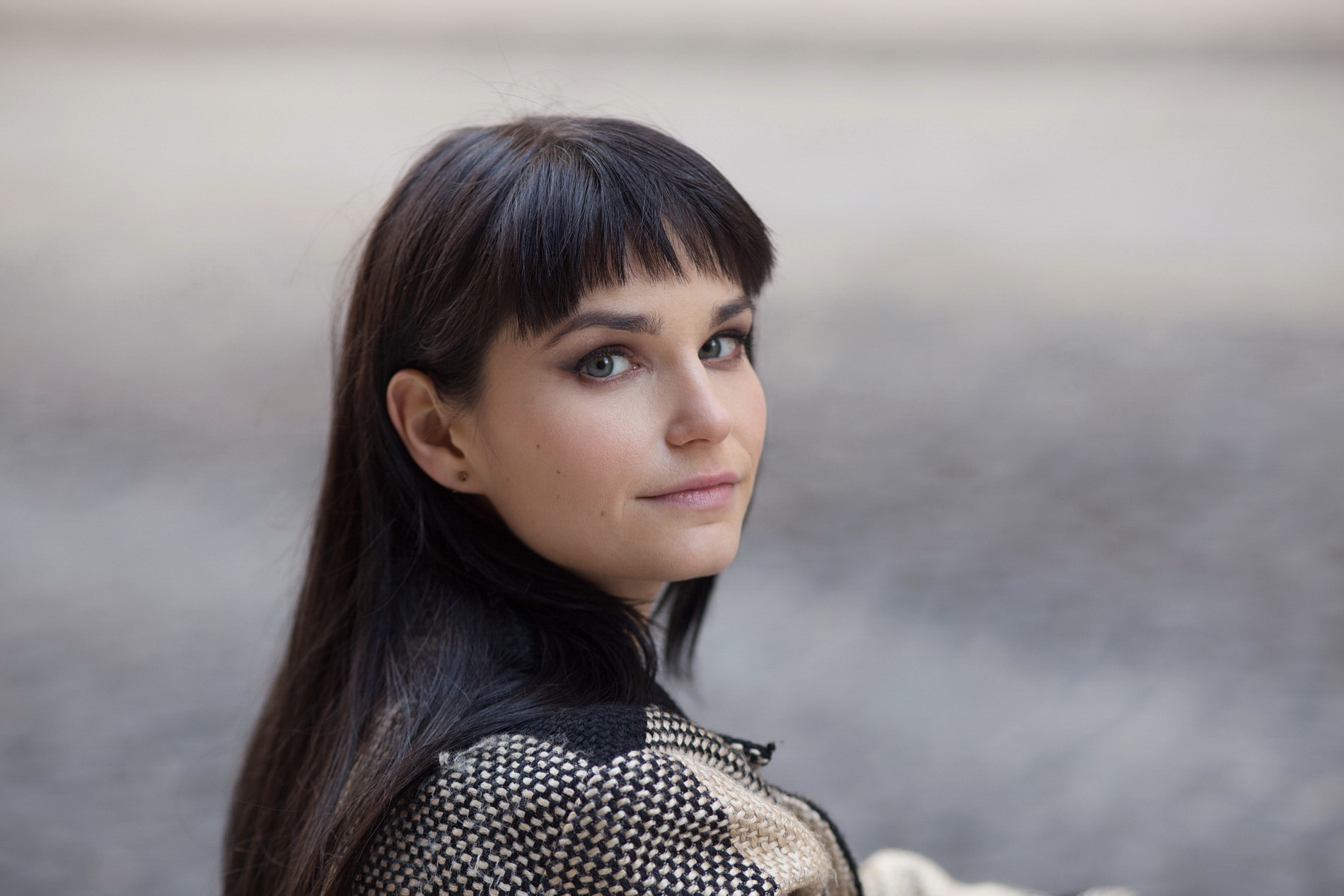
Emőke Baráth, soprano
Hungarian soprano Emőke Baráth has performed roles in many of Alan Curtis’s Handel opera productions, including Sesto in Giulio Cesare, Antigona in Admeto, Oriana in Amadigi di Gaula, and Alceste in Arianna in Creta, in prestigious venues such as Theater an der Wien, Auditorio Nacional in Madrid, and Théâtre des Champs-Élysées.
She regularly sings Handel and Bach, including the latter’s Mass in B minor, Saint Matthew Passion, and Christmas Oratorio, with such groups as the Freiburger Barockorchester, Il Pomo d’Oro, Accademia Bizantina, and Les Musiciens du Louvre.
Emőke Baráth also specializes in seicento composers, and has performed the lead roles in Monteverdi and Cavalli operas. She is increasingly in demand to perform Mozart, and has appeared as Susanna in Le nozze di Figaro, Zerlina in Don Giovanni, and Despina in Così fan tutte, among others. In 2017, she sings the title role of Cavalli’s Hipermestra at the Glyndebourne Festival under William Christie.
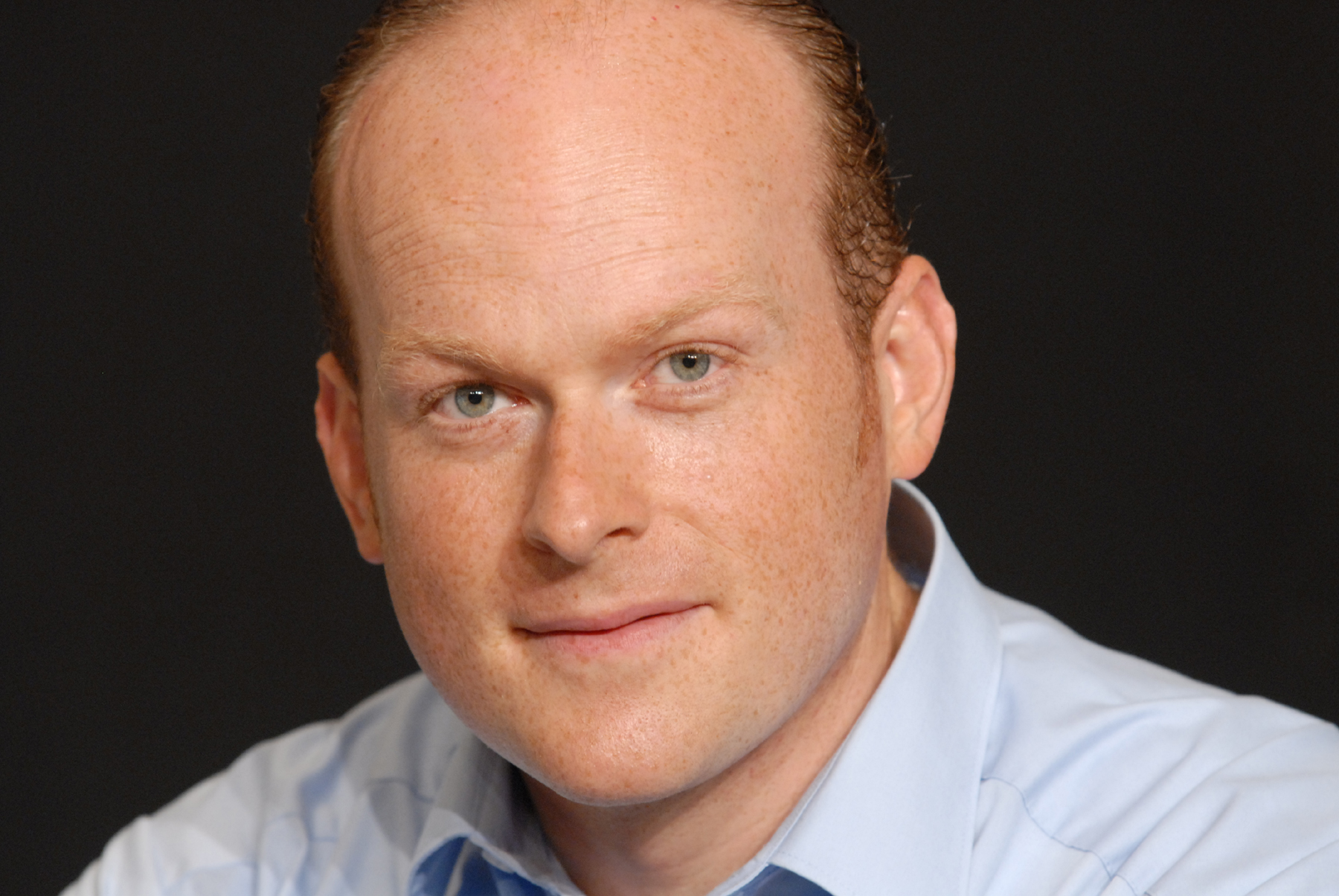
Colin Balzer, tenor
Canadian lyric tenor Colin Balzer’s North American engagements include recitals at New York’s Frick Collection and on the Philadelphia Chamber Music series; concerts with the Portland, New Jersey, Utah, Victoria, Ann Arbor, Québec, Atlanta, and Indianapolis Symphonies; Early Music Vancouver; Tafelmusik and the Toronto Mendelssohn Choir; Les Violons du Roy; the National and Calgary Philharmonics; Ottawa’s National Arts Centre Orchestra; Musica Sacra and the Oratorio Society of New York at New York’s Carnegie Hall. In addition, he is regularly featured in opera productions at the Boston Early Music Festival.
Guest soloist appearances abroad include work with Collegium Vocale Gent led by Philippe Herreweghe, Fundacao OSESP Orchestra and Louis Langrée, Les Musiciens du Louvre under Marc Minkowski, Rotterdam Philharmonic led by Yannick Nézet-Séguin, Akademie für alte Musik under Marcus Creed, and the RIAS Kammerchor, Scottish Chamber Orchestra, Radio Kamer Filharmonie, Estonian Chamber Choir, and Musik Podium Stuttgart. Operatic forays include the role of Don Ottavio in Mozart’s Don Giovanni at the Bolshoi and in Aix-en-Provence and Mozart’s La finta giardiniera in Aix and Luxembourg.
Particularly esteemed as a recitalist, he has been welcomed at London’s Wigmore Hall, the Britten Festival in Aldeburgh, the Vancouver Chamber Music Festival, the Wratislavia Cantans in Poland, and at the Festspielhaus in Baden-Baden. Recordings to date include Wolf’s Italienisches Liederbuch and Eisler and Henze song anthologies. Mr. Balzer holds the rare distinction of earning the Gold Medal at the Robert Schumann Competition in Zwickau with the highest score in 25 years. Born in British Columbia, he received his formal musical training at the University of British Columbia with David Meek and with Edith Wiens at the Hochschule für Musik Nürnberg, Augsburg.
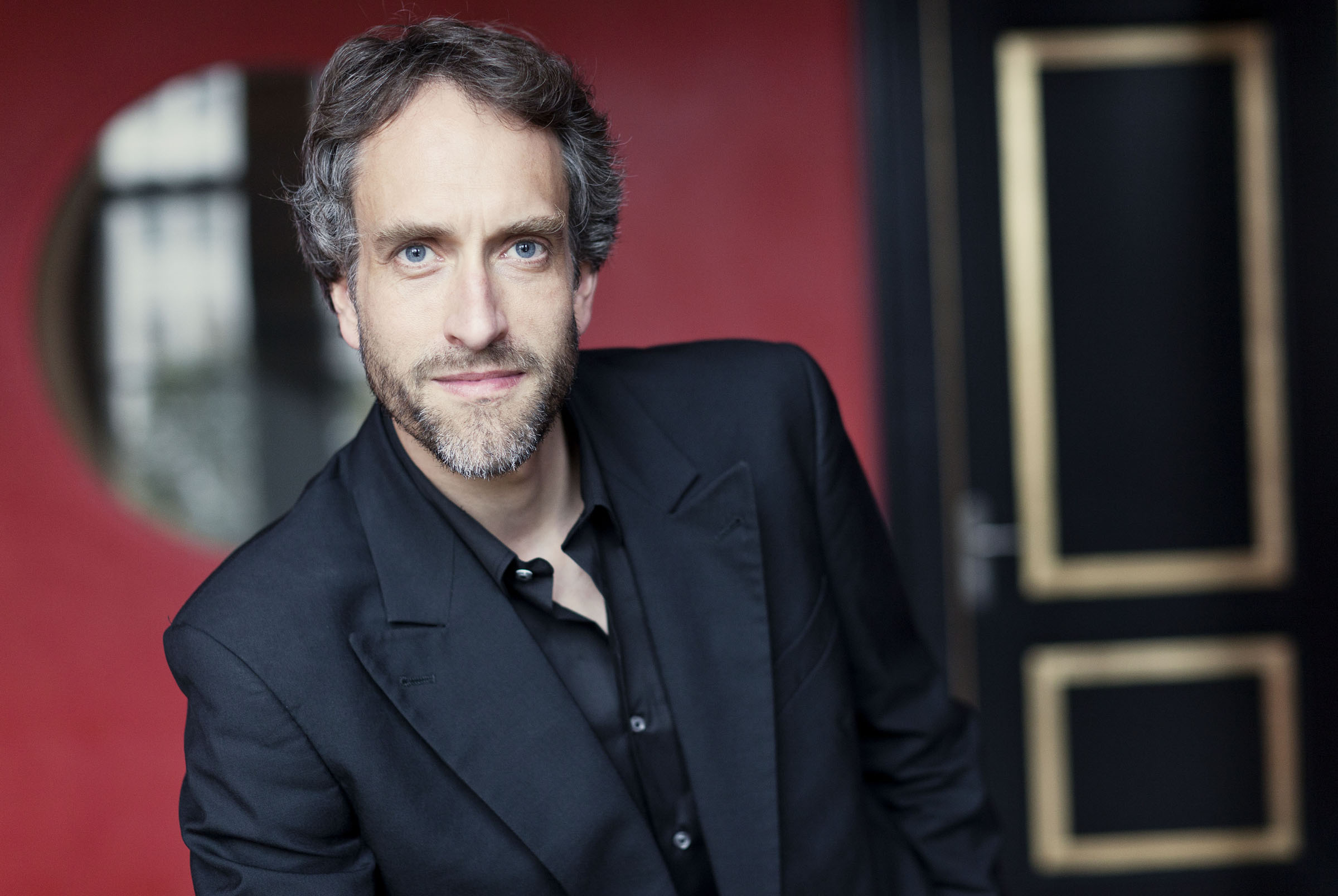
Christian Immler, bass-baritone
German baritone Christian Immler studied with Rudolf Piernay and won the International Nadia et Lili Boulanger Competition in Paris. Christian has worked with such conductors as Harnoncourt, Minkowski, Bolton, Conlon, Herreweghe, Harding, Parrott, Corboz, Suzuki, Dantone, Antonini, Nagano, Christie, Christophers, Bernius, Alarcón, and Pichon, performing at places such as the Amsterdam Concertgebouw, the Salzburg and Lucerne Festivals, and the BBC Proms.
On stage he appeared at Opéra Comique Paris, the Grand Théâtre Genève, New Israeli Opera, and the Boston Early Music Festival. A keen recitalist, Christian has been invited to perform at Wigmore Hall, the Frick Collection in New York, the Salzburg Mozarteum, and Tonhalle Zurich, this last with pianist Helmut Deutsch.
His more than forty recordings have been awarded prizes such as the Diapason d’Or, Diapason Découverte, Diamant d’Opéra, Echo Klassik Preis, France Musique’s Record of the Year, and a Grammy nomination. Christian is Professor of Voice at the Musikhochschule in Lausanne/Fribourg. His website is at www.christianimmler.com.
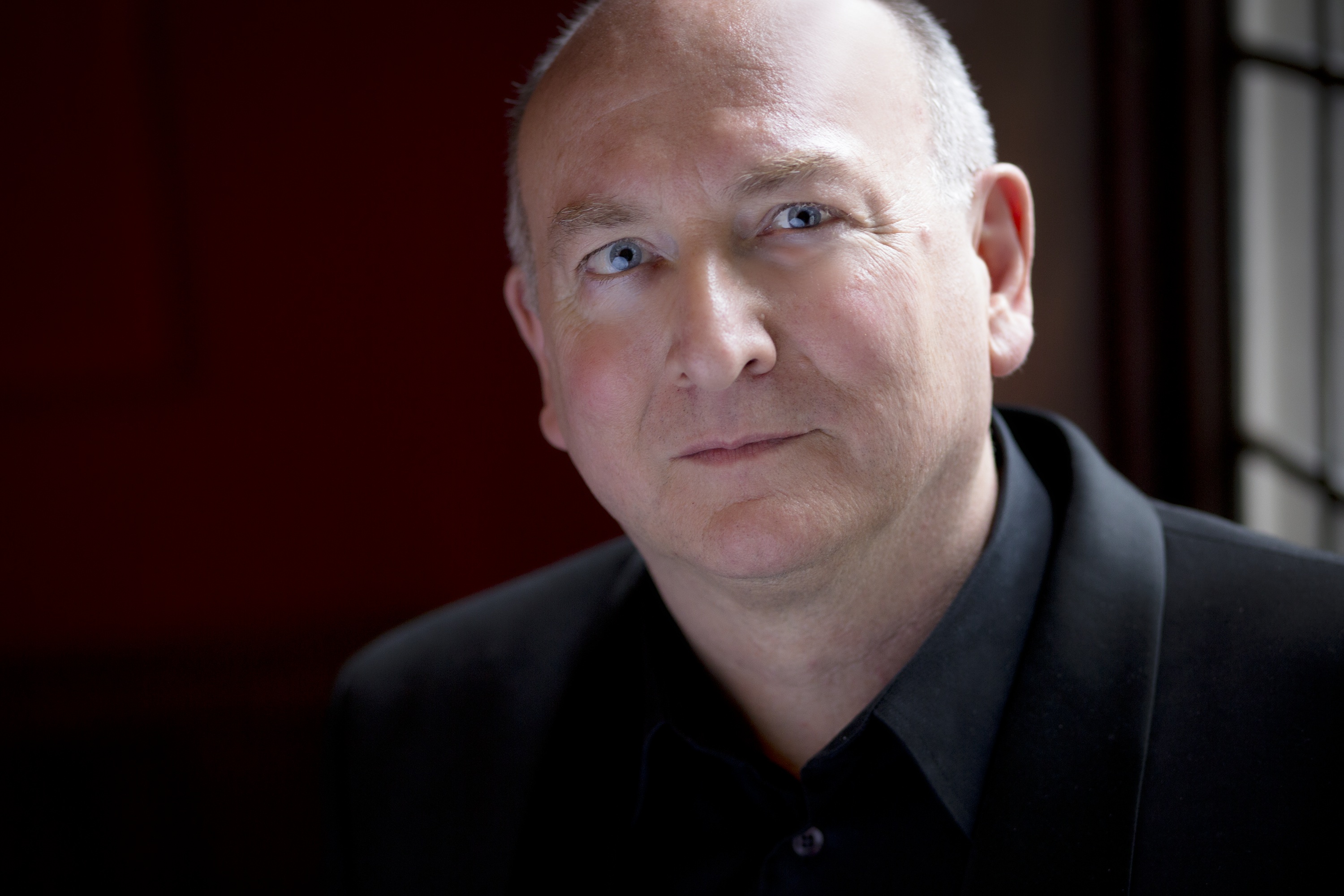
Stephen Stubbs, artistic co-director of BEMF and baroque guitar
Stephen Stubbs, who won the GRAMMY® Award as conductor for Best Opera Recording 2015, spent a 30-year career in Europe. He returned to his native Seattle in 2006 as one of the world’s most respected lutenists, conductors, and baroque opera specialists.
In 2007 Stephen established his new production company, Pacific MusicWorks, based in Seattle. He is the Boston Early Music Festival’s permanent artistic co-director, recordings of which were nominated for five GRAMMY awards. Also in 2015 BEMF recordings won two Echo Klassik awards and the Diapason d’Or de l’Année.
In addition to his ongoing commitments to PMW and BEMF, other recent appearances have included Handel’s Amadigi for Opera UCLA, Mozart’s Magic Flute and Cosi fan Tutte in Hawaii, Handel’s Agrippina and Semele for Opera Omaha, Cavalli’s Calisto and Rameau’s Hippolyte et Aricie for Juilliard and Mozart’s Il re pastore for the Merola program in San Francisco. He has conducted Handel’s Messiah with the Seattle, Edmonton, Birmingham and Houston Symphony orchestras.
His extensive discography as conductor and solo lutenist includes well over 100 CDs, which can be viewed at stephenstubbs.com, many of which have received international acclaim and awards.
Stephen is represented by Schwalbe and Partners (schwalbeandpartners.com).
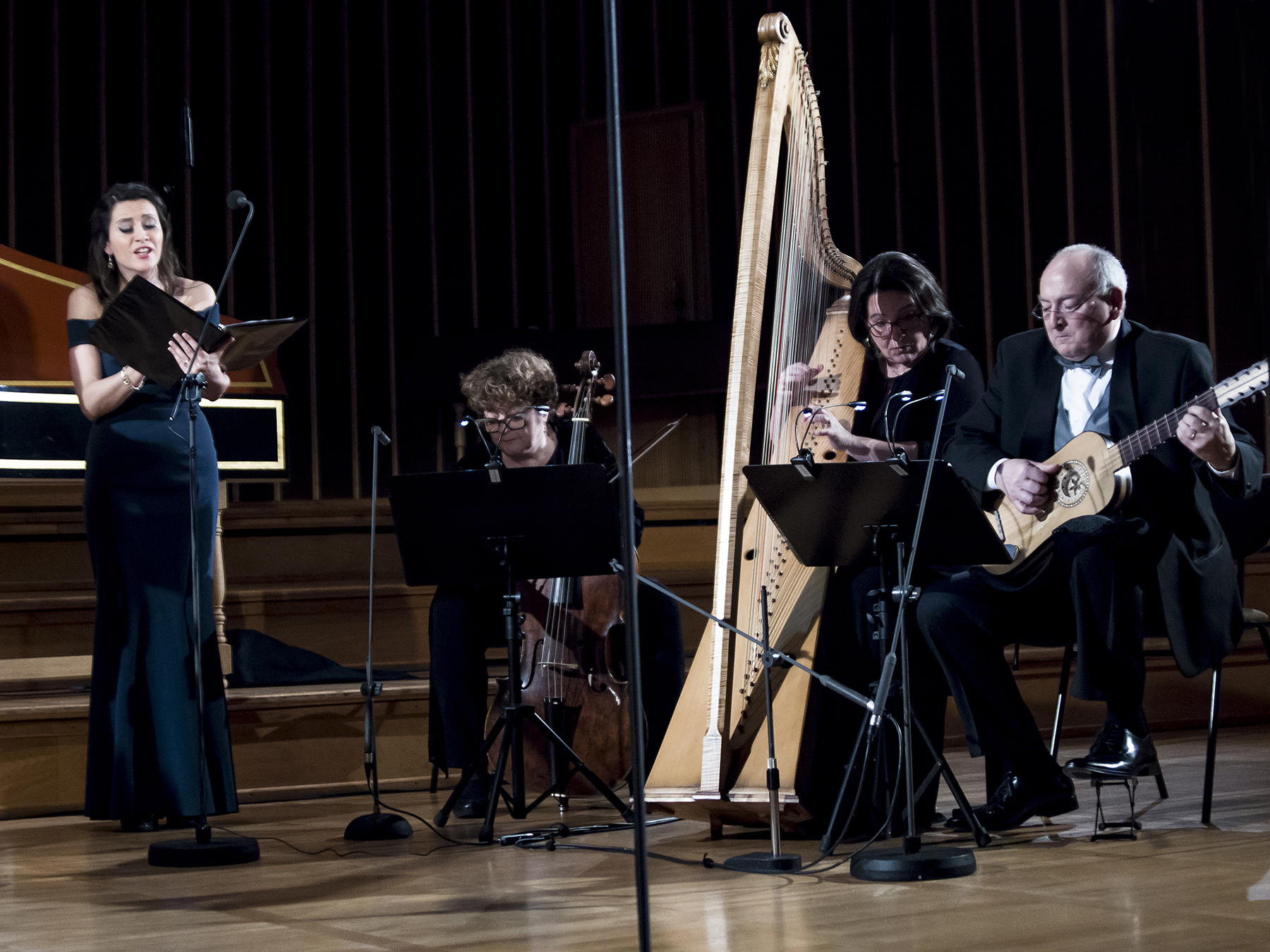
BEMF Chamber Ensemble
The Boston Early Music Festival Chamber Ensemble was established in October 2008 and delighted the public a month later at the début production of the Boston Early Music Festival Chamber Opera Series: John Blow’s Venus and Adonis and Marc-Antoine Charpentier’s Actéon.
The BEMF Chamber Ensemble is a unique and intimate subset of the BEMF Orchestra, and its creation was inspired not only by the smaller instrumental forces required for BEMF’s annual Chamber Opera Series productions, but also by invitations from numerous colleague organizations.
The BEMF Chamber Ensemble’s third CD on the cpo label, the Charpentier opera double bill of La Descente d’Orphée aux Enfers and La Couronne de Fleurs, won the Grammy Award in 2015 for Best Opera Recording. The ensemble is led by one or both of BEMF’s Artistic Directors, Paul O’Dette and Stephen Stubbs, or by BEMF’s Orchestra Director Robert Mealy, and features the best Baroque instrumentalists from around the world.
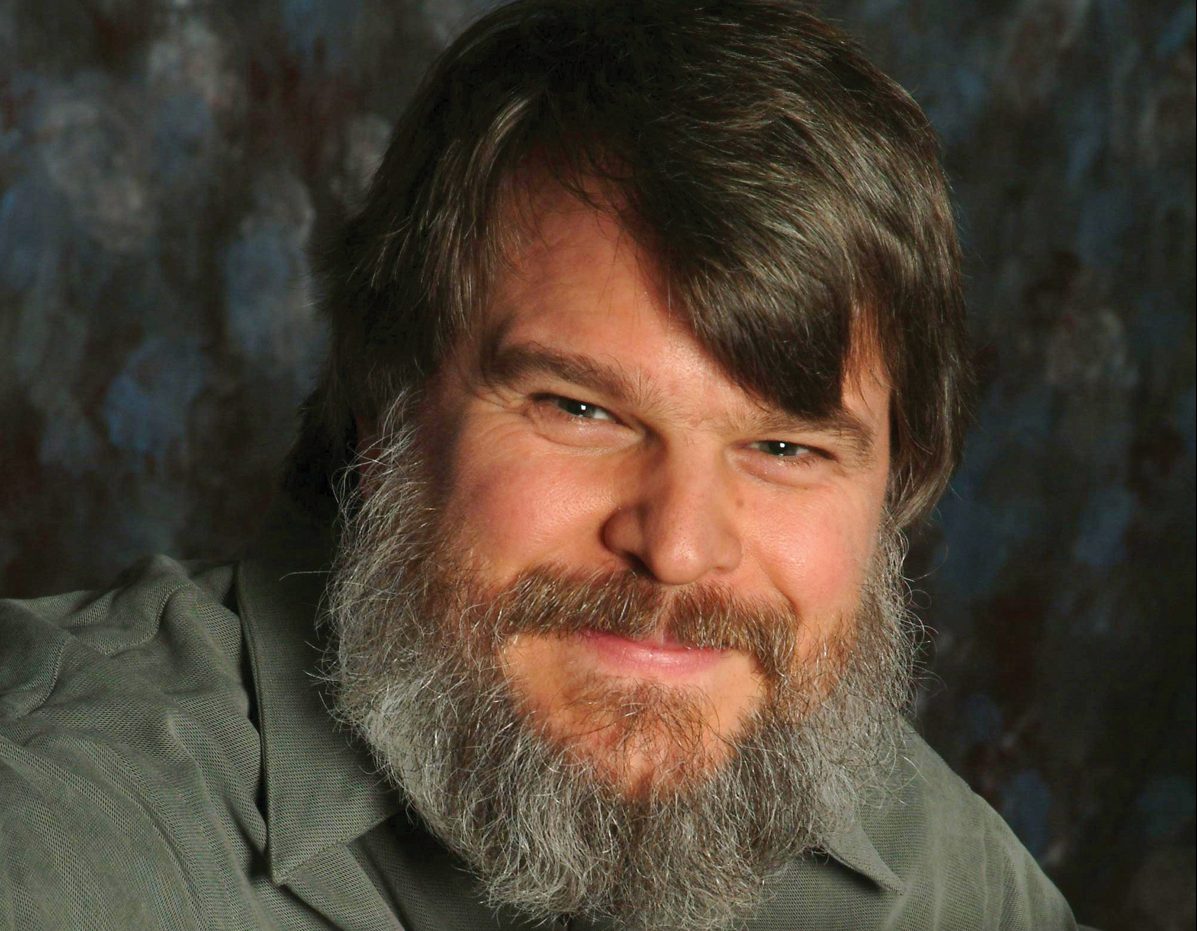
Paul O’Dette, artistic co-director of BEMF and theorbo
Paul O’Dette has been described as “the clearest case of genius ever to touch his instrument” (Toronto Globe and Mail). He appears regularly at major festivals throughout the world performing lute recitals and in chamber music programs with leading early music colleagues.
Mr. O’Dette has made more than 140 recordings, winning two Grammy Awards and receiving six Grammy nominations and numerous international record awards. The Complete Lute Music of John Dowland (a 5-CD set for harmonia mundi usa) was awarded the prestigious Diapason d’Or de l’Année, and was named “Best Solo Lute Recording of Dowland” by BBC Radio 3. The Bachelar’s Delight: Lute Music of Daniel Bacheler was nominated for a Grammy as Best Solo Instrumental Recording in 2006.
While best known for his recitals and recordings of virtuoso solo lute music, Paul O’Dette is also active as a conductor of Baroque opera. Together with Stephen Stubbs he won a Grammy as conductor in 2015 for Best Opera Recording, as well as an Echo Klassik Award, for their recording of Charpentier’s La Descente d’Orphée aux Enfers with the Boston Early Music Festival Chamber Ensemble. Their CDs of Conradi’s Ariadne, Lully’s Thésée, Lully’s Psyché, with the Boston Early Music Festival Orchestra on the cpo label, were nominated for Grammys in 2005, 2007, and 2008; their 2015 BEMF CD of Steffani’s Niobe, Regina di Tebe on the Erato/Warner Classics label was also nominated for a Grammy.
In addition to his activities as a performer, Paul O’Dette is an avid researcher, having worked extensively on the performance and sources of seventeenth-century Italian and English solo song, continuo practices, and lute music. He has published numerous articles on issues of historical performance practice, and co-authored the John Dowland entry in the New Grove Dictionary of Music and Musicians. Paul O’Dette is Professor of Lute and Director of Early Music at the Eastman School of Music and Artistic Co-Director of the Boston Early Music Festival.
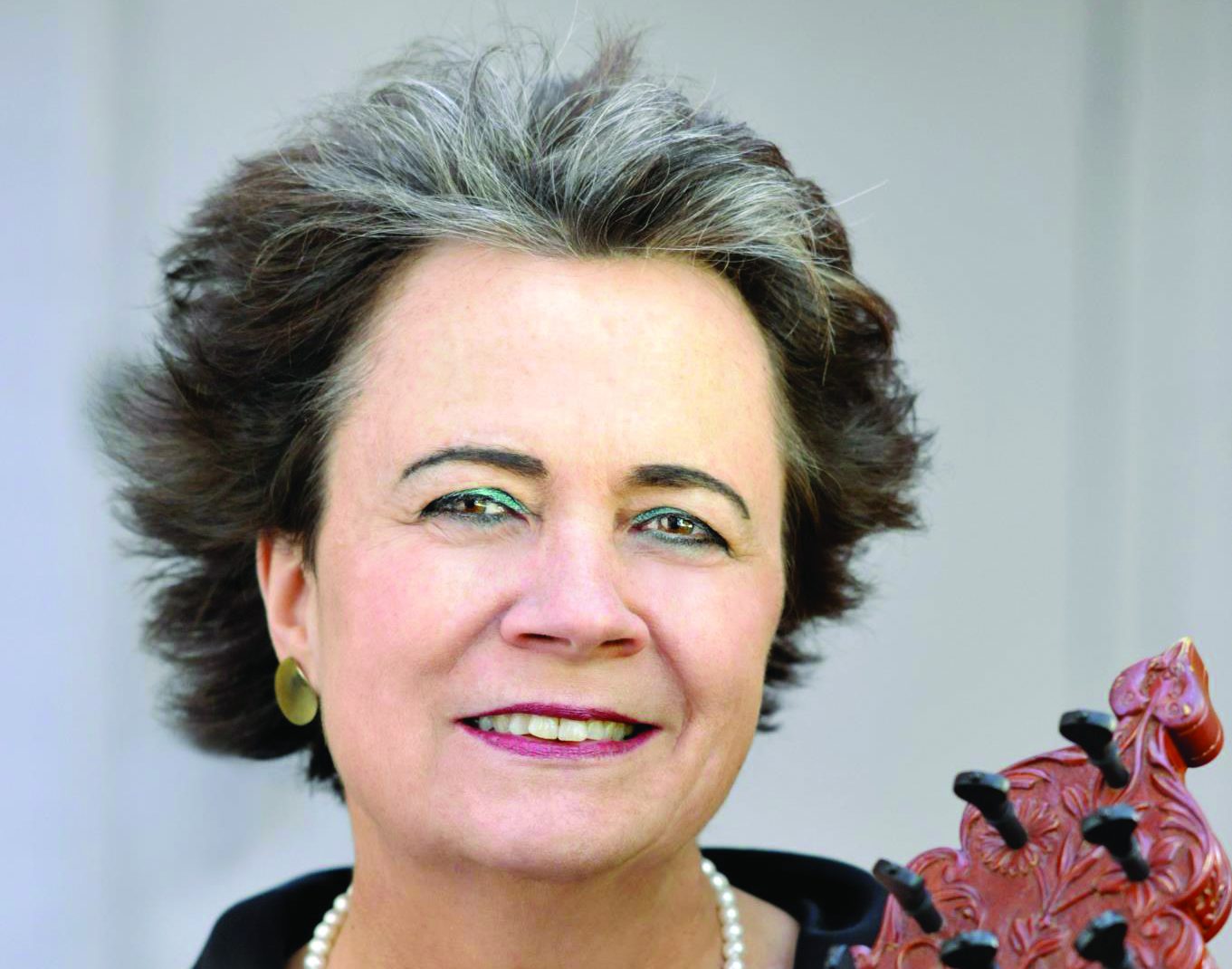
Erin Headley, viola da gamba
More than thirty years of performing as an internationally acclaimed viola da gamba and lirone player with such top-flight ensembles as Les Arts Florissants, Tragicomedia and many others, countless recordings on major labels, and her unique status as the world’s leading authority on the lirone have made Erin Headley preeminent in the field of early music. Before the founding of Atalante, Erin Headley had already made more than 100 CDs on labels such as Harmonia Mundi France, Hyperion, and Deutsche Grammophon. She is the author of the lirone articles in The New Grove Dictionary of Music and Musicians (second edition) and The New Grove Dictionary of Musical Instruments. To further her research on the lirone, in 2007 Erin Headley was awarded a prestigious Arts and Humanities Research Council fellowship in residence at the University of Southampton, where she is now an honorary fellow.
In 2011 she received a Distinguished Alumnus award from Pennsylvania State University, and in the spring of 2013, she was Musician-in-Residence at the prestigious Villa I Tatti, Harvard University’s Center for Italian Renaissance Studies in Florence. To ensure that the instrument and its Italian repertoire flourish as they did in the 17th century, Erin Headley has produced and presented staged performances, recordings, videos, masterclasses, lectures, published articles and performing editions to reach a larger audience.
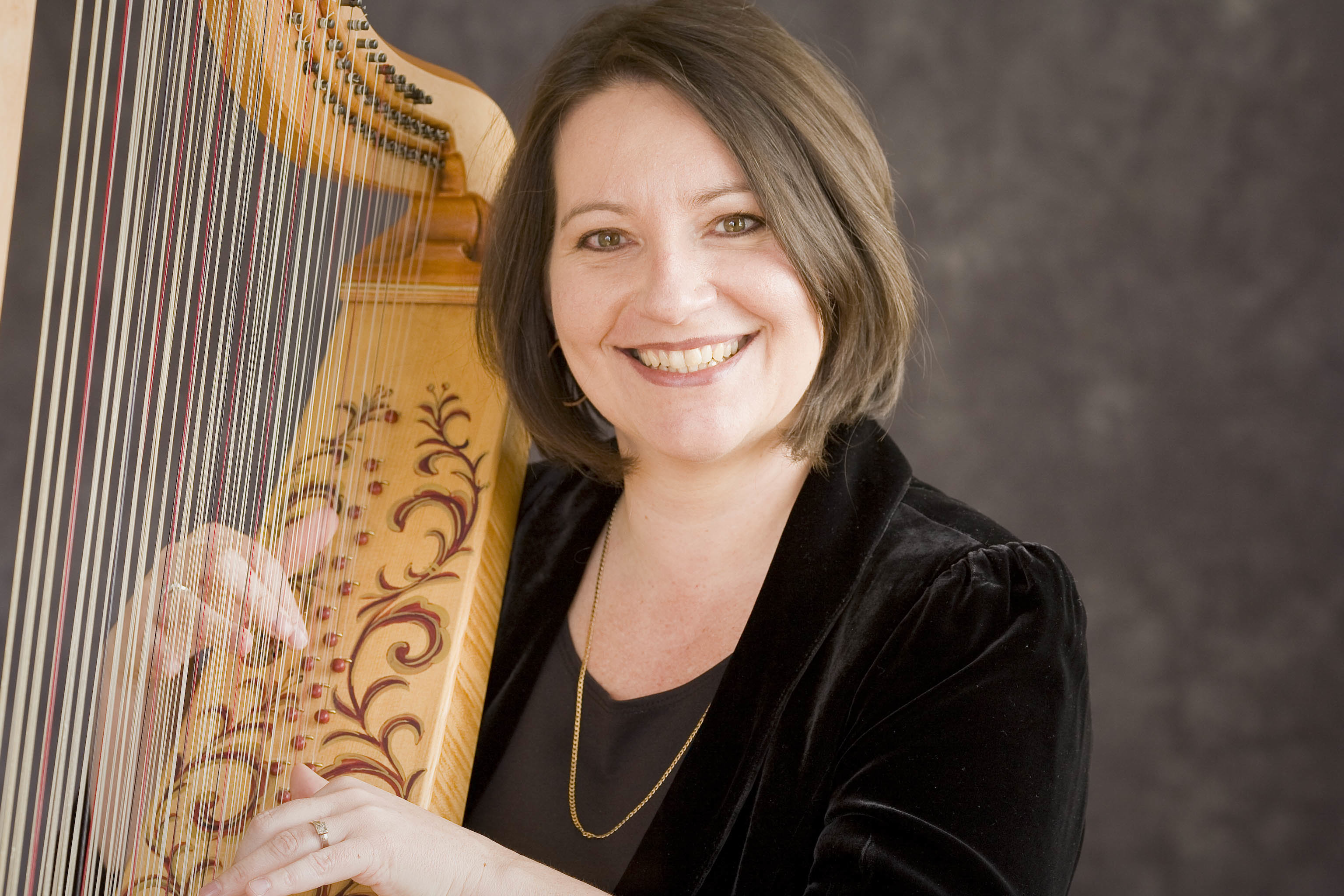
Maxine Eilander, baroque harp
Seattle-based harpist Maxine Eilander first performed at the Boston Early Music Festival in 1999, and has been the regular harpist for Tragicomedia and the Festival’s operas ever since. Maxine has also performed at numerous opera houses and festivals such as Covent Garden, Staatstheater Stuttgart, and Netherlands Opera.
In 2012 Maxine was invited to perform Handel’s Harp Concerto at the World Harp Congress in Vancouver, B.C. As an administrator, Maxine was the Director of Education for Pacific MusicWorks starting in 2007, and in 2013 became PMW’s Managing Director.
Her recordings include Handel’s Harp, released on ATMA in 2009, with all of Handel’s obbligato music written for the harp, including his famous harp concerto, the 2008 release of William Lawes’ Harp Consorts (ATMA), Sonata al Pizzico, a recording of Italian music for harp and Baroque guitar with duo partner Stephen Stubbs (ATMA 2004), and Teatro Lirico, released on the ECM label in 2006.
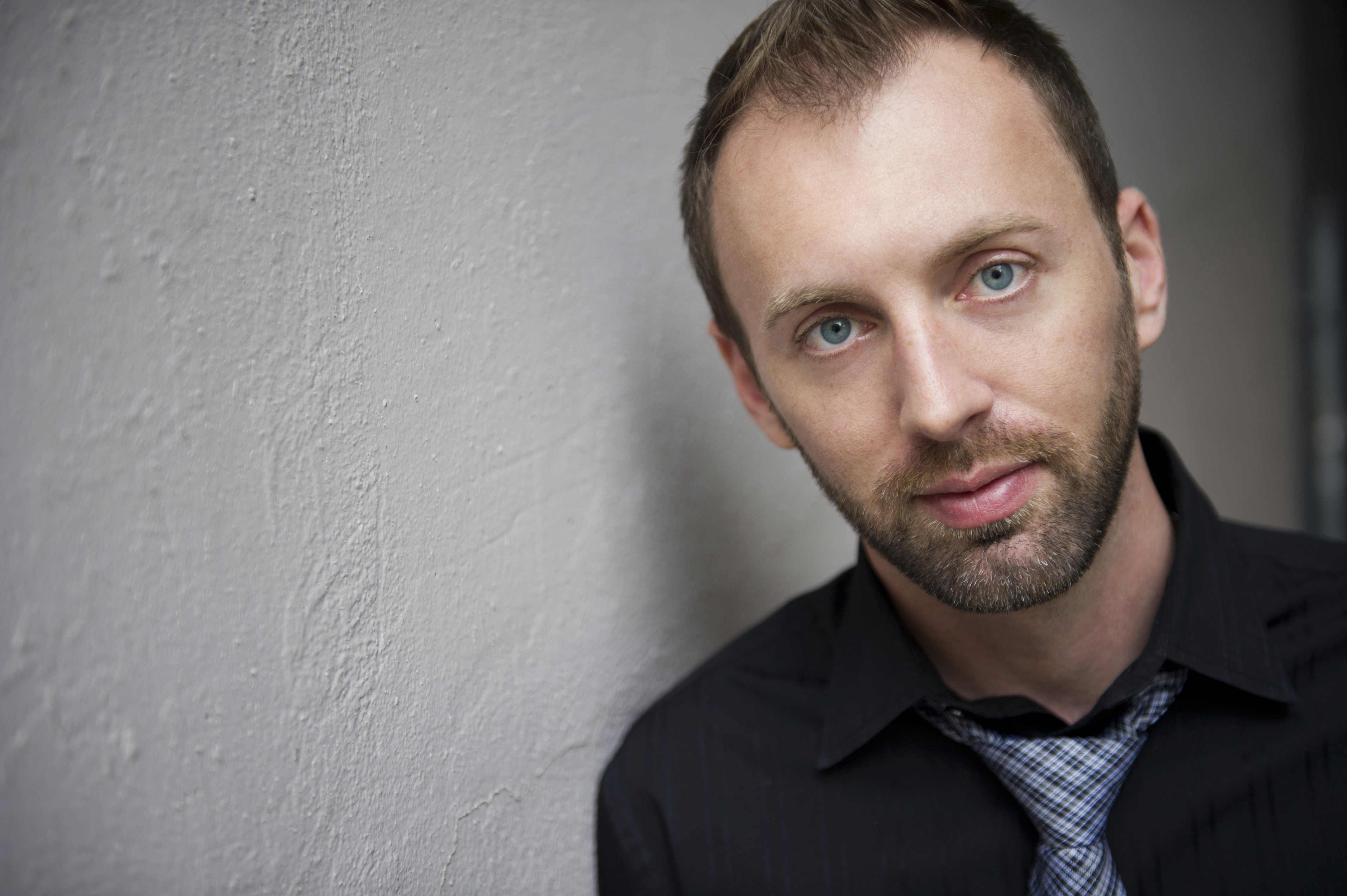
Michael Sponseller, harpsichord
Michael Sponseller is recognized as one of the outstanding American harpsichordists of his generation. Since graduating from the Oberlin Conservatory of Music, studying with Lisa Goode Crawford, and the Royal Conservatoire The Hague, he has taken several prizes including being a rare two-time winner at the Bruges Competition in 1998 and 2001.
Mr. Sponseller now enjoys a highly diversified career which brings him to concert venues and festivals as harpsichordist and continuo organist to several of today’s finest musicians, with regular appearances in many of America’s Baroque orchestras and chamber groups, including the Boston Early Music Festival, Bach Collegium San Diego, Les Délices, Tragicomedia, and the Aston Magna Festival.
He has taught at the Longy School of Music, Baldwin Wallace University, and Oberlin’s Baroque Performance Institute, and given numerous masterclasses throughout the U.S. In 2014, he was named Associate Director of Bach Collegium San Diego. His recordings are on the Delos, Centaur Eclectra, Vanguard Classics, RMAP, and Naxos labels.


